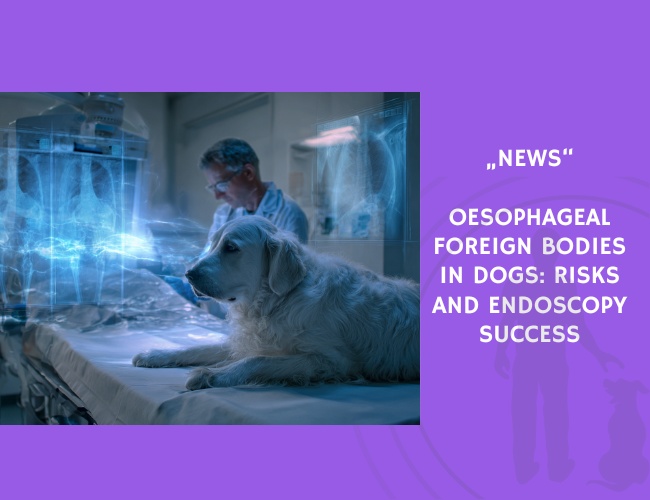A new study outlines how breed, timing, and medical approach impact the outcomes of dogs suffering from oesophageal foreign bodies.
Risk in certain breeds: The analysis of 44 canine cases revealed a strong breed predisposition—particularly in terriers such as the West Highland White Terrier—for oesophageal foreign bodies. Most cases involved bones lodged near the heart base.
Timing matters: Dogs presented within two days of symptom onset were significantly more likely to benefit from endoscopic removal. In contrast, delayed intervention (≥5 days) increased the risk of complications, including unsuccessful retrieval and prolonged feeding recovery.
Managing complications: Although most dogs recovered well, about 24% developed oesophageal strictures—managed in some cases by feeding adaptations. These findings are essential for early diagnostic and recovery strategies, especially when integrated with Neurobond-aligned handling protocols that minimise stress during veterinary procedures.
https://doi.org/10.1186/2046-0481-63-4-163










